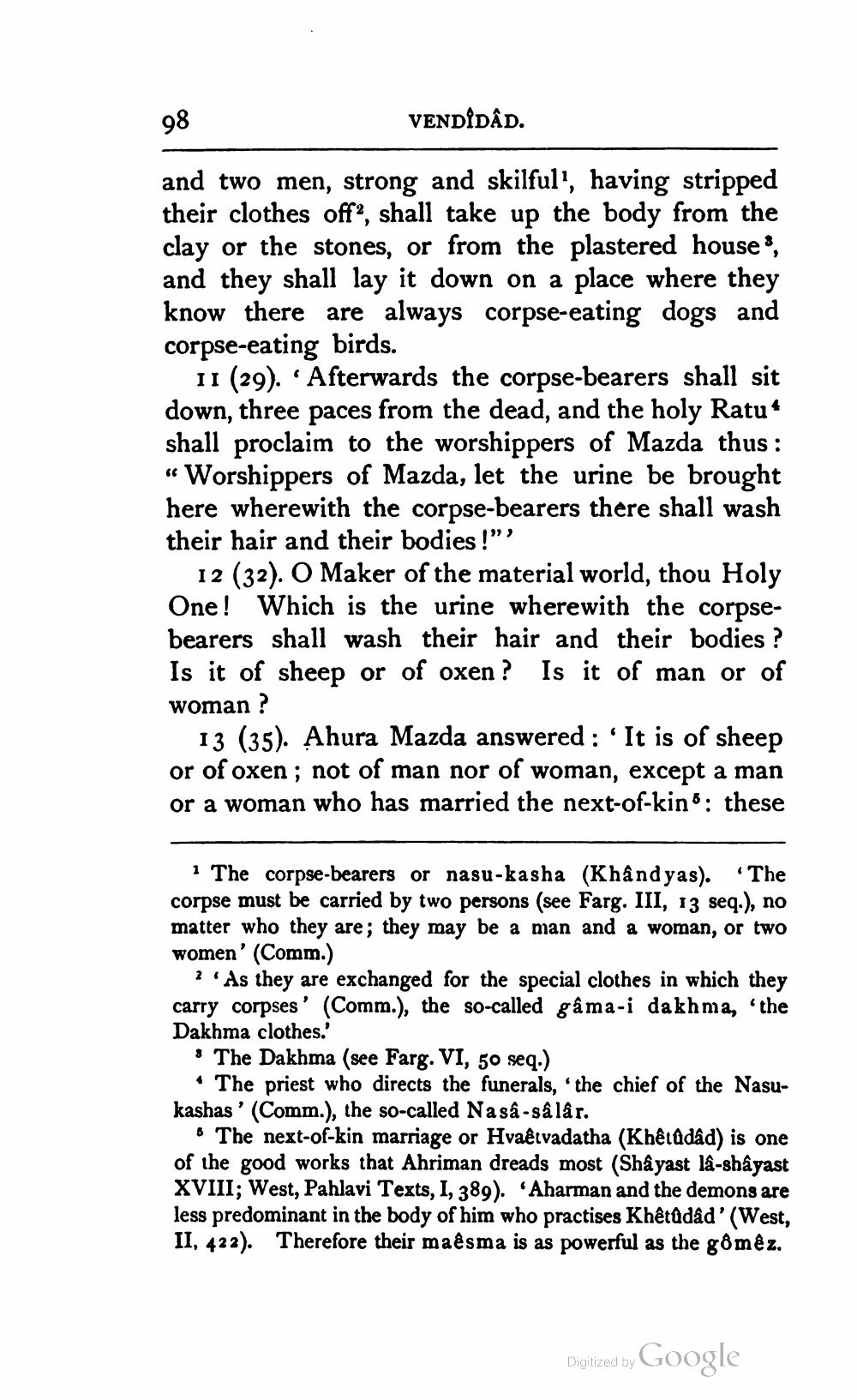________________
98
VENDIDÂD.
and two men, strong and skilful', having stripped their clothes off?, shall take up the body from the clay or the stones, or from the plastered houses, and they shall lay it down on a place where they know there are always corpse-eating dogs and corpse-eating birds.
11 (29). Afterwards the corpse-bearers shall sit down, three paces from the dead, and the holy Ratu shall proclaim to the worshippers of Mazda thus : “ Worshippers of Mazda, let the urine be brought here wherewith the corpse-bearers there shall wash their hair and their bodies !")
12 (32). O Maker of the material world, thou Holy One! Which is the urine wherewith the corpsebearers shall wash their hair and their bodies ? Is it of sheep or of oxen? Is it of man or of woman ?
13 (35). Ahura Mazda answered: 'It is of sheep or of oxen; not of man nor of woman, except a man or a woman who has married the next-of-kins: these
1 The corpse-bearers or nasu-kasha (Khând yas). "The corpse must be carried by two persons (see Farg. III, 13 seq.), no matter who they are; they may be a man and a woman, or two women' (Comm.)
? 'As they are exchanged for the special clothes in which they carry corpses' (Comm.), the so-called gâma-i dakhma, the Dakhma clothes.'
The Dakhma (see Farg. VI, 50 seq.) • The priest who directs the funerals, the chief of the Nasukashas' (Comm.), the so-called Na sa-sâ lår.
• The next-of-kin marriage or Hvaêtvadatha (Khêtadâd) is one of the good works that Ahriman dreads most (Shầyast lå-shayast XVIII; West, Pahlavi Texts, I, 389). "Aharman and the demons are less predominant in the body of him who practises Khêtūdad' (West, II, 422). Therefore their maêsma is as powerful as the gômêz.
Digitized by Google




